
Emergency Dentistry—Jonesboro, AR
Fast & Professional Care Right When You Need It
No one ever plans to experience a dental emergency, but roughly 1 in 6 Americans will have one this year alone! The last thing you want to do when dealing with a knocked-out tooth or terrible toothache is waste time looking for an emergency dentist in Jonesboro who can see you right away, which is why we’re here to make things easy. Should you encounter an unexpected dental problem, just give us a call , and our dental office will schedule you a same-day appointment for emergency dentistry.
Why Choose Shane Smith DDS for Emergency Dentistry?
- Same-Day Emergency Appointments
- Friendly, Highly Skilled Dental Team
- Dental Insurance Welcomed & Maximized
How We Treat Dental Emergencies

- Call Us: The first step you should always take if you find yourself experiencing oral pain or an emergency situation is to contact our team. We’ll provide you with first aid guidance and schedule an appointment for as soon as possible to get you out of discomfort.
- Come In: As soon as you arrive, our team will capture any necessary diagnostic information, like X-rays, get your dental history, and examine your mouth. Based on our findings, we’ll then diagnose the issue that’s causing your discomfort or symptoms.
- Plan Your Treatment: Once we diagnose the problem at-hand, we’ll put together a customized treatment plan to restore the health of your grin and repair any dental damage that has occurred.
- Treat the Issue At-Hand: As soon as you consent to moving forward with the treatment plan, we’ll quickly and effectively execute the procedure to improve your comfort.
The Most Common Dental Emergencies
It can be tough to think clearly when faced with a dental emergency, so here’s our general recommendation for all of our patients: always call our dental office . Even if you’re unsure whether or not your situation is urgent, it’s better to be safe than sorry. On the phone, we’ll walk you through what to do and will let you know if you need to come see us right away. In the meantime, here are a few tips on how to handle some of the most common issues we encounter:
Understanding the Cost of Dental Emergencies

Patients often think treating a dental emergency is painful for two reasons: pain from the injury, and pain from the bill. With us, you won’t need to worry about coming to see our emergency dentist in Jonesboro and then getting a huge bill afterward. During your visit, we will go over your treatment options and pricing information clearly. In the meantime, you can learn more about the factors that will influence the cost below.
Don’t Forget: Every Dental Emergency is Different
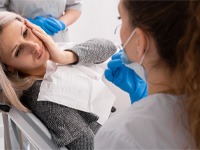
Dental injuries can stem from minor tooth sensitivity to a completely knocked-out tooth. So, you can see why there isn’t a flat fee associated with dental emergencies. The final price of your treatment will be based on the type and degree of your injury, as well as which procedures are needed to address it. As always, our team will go the extra mile to review your treatment options and all of the associated fees, so you can make the right call for you.
Does Dental Insurance Cover the Cost of Dental Emergencies?
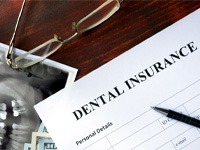
While dental plans can vary, they typically include some form of coverage, from annual emergency exams to 50%-80% coverage for restorative treatments. So, if you’re insured, don’t hesitate to ask about utilizing any available benefits! Our knowledgeable team will make the entire process as seamless as possible. Once we’ve handled the paperwork, we will explain your benefits and the remaining out-of-pocket costs (if necessary) to ensure understanding the cost is easy.
Other Options for Making Dental Emergencies Affordable

If you’re uninsured, don’t assume that the cost of emergency dentistry in Jonesboro is too expensive. We’re proud to work with CareCredit, a third-party financier. As a result, you can pick a payment plan that works best with your budget. The best part? There is little-to-no interest attached for qualified patients! Applying is easy, too. If this sounds like an option worth exploring, get in touch with our team!
How Taking Care of Your Smile Can Save You Money
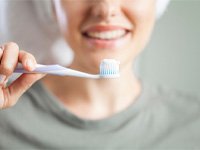
When discussing the cost of treating dental emergencies, it’s worth mentioning the importance of preventive care. In short, implementing good oral hygiene practices will significantly reduce your chances of having to suddenly visit our emergency dentist in Jonesboro. With this in mind, make sure to brush your teeth with a soft-bristled toothbrush twice a day and floss daily. You should also avoid unhealthy practices, like smoking, chewing on ice, and using your teeth as tools to open things. And, of course, prioritize your six-month dental checkups and cleanings. These visits will catch concerns, like tooth decay, before they turn into painful dental emergencies.
Keys to Preventing Dental Emergencies

It’s always better to avoid a dental emergency, just like any other medical issue. Dealing with an urgent oral issue would cost you time and money and disrupt your schedule. Even so, what if you don’t know how to reduce your risk of these problems? The solution is to rely on us - we’ll help you prevent dental emergencies in Jonesboro. To that end, read on to learn some helpful tips, or call our office directly.
See Your Dentist Often
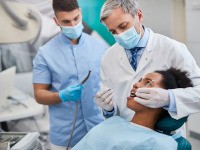
Perhaps the best way to avoid dental emergencies is to see your dentist often. With frequent dental checkups and cleanings, your smile will be much safer.
Don’t forget: These checkups are the most effective kind of preventive dental care. By finding and treating minor oral issues, they keep your smile from developing worse ones. That means regular checkups make many dental dilemmas – tooth infections, loose teeth, etc. – much less likely.
Care for Your Smile at Home

Of course, having a dentist check your smile isn’t your only option. Practicing good oral care at home is another great way to avoid dental emergencies.
Proper oral hygiene habits prevent many serious oral problems. For instance, twice-daily brushing removes the plaque and bacteria that cause tooth infections. Flossing at least once a day also lowers your chances of getting gum disease or advanced tooth decay. In other words, a smile cleaned with home care won’t have emergencies often.
Follow a Mouth-Healthy Diet

If you stick to a mouth-healthy diet, you likely won’t have many (or any) dental emergencies. This approach to your meals protects your smile from harm.
You see, a lousy diet often triggers urgent oral issues. An excess of sugary foods and drinks leads to tooth decay, which causes cavities and infections. Plus, acidic stuff (especially soda) erodes enamel and makes the dentin beneath your enamel sensitive. The best way to avoid these outcomes is to follow a mouth-healthy diet of lean proteins, dairy products, and veggies.
Try a Mouthguard
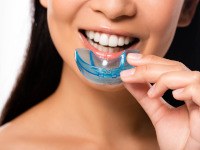
If you really want to prevent dental emergencies, you should try wearing a mouthguard. This device should let you avoid incidents that threaten your oral health.
Keep in mind that it’s pretty easy to injure teeth. By playing a football or basketball game, you could have a fall or collision that knocks out a tooth or two. Grinding your arches at night could also result in chipped or cracked teeth. Thankfully, a sportsguard can stop mouth injuries from collisions and falls; a nightguard would also prevent you from teeth grinding.
Use Tools to Open Packages, Not Teeth
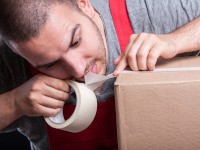
Even if you’re pressed for time, don’t use your teeth as tools for packages. You’ll avoid many dental emergencies by following that rule.
The simple truth is that using teeth as tools wears down your enamel. Over time, this habit will erode the top layers of your smile and make it much more vulnerable. That means you should only use your teeth for smiling, speaking, and eating. Relying on them to open boxes or tear tape isn’t a good idea.
Root Canal Therapy

If bacteria is able to reach the inner chamber of a tooth, it can infect the dental pulp, which contains multiple blood vessels as well as a sensitive nerve. As you can imagine, this can cause quite the toothache! Thankfully, Dr. Smith can stop the pain and save the tooth with root canal therapy. This involves numbing a patient and then removing the damaged tissue before filling the tooth and topping it with a crown, making it as good as new.
Learn More About Root Canal Therapy
Tooth Extractions
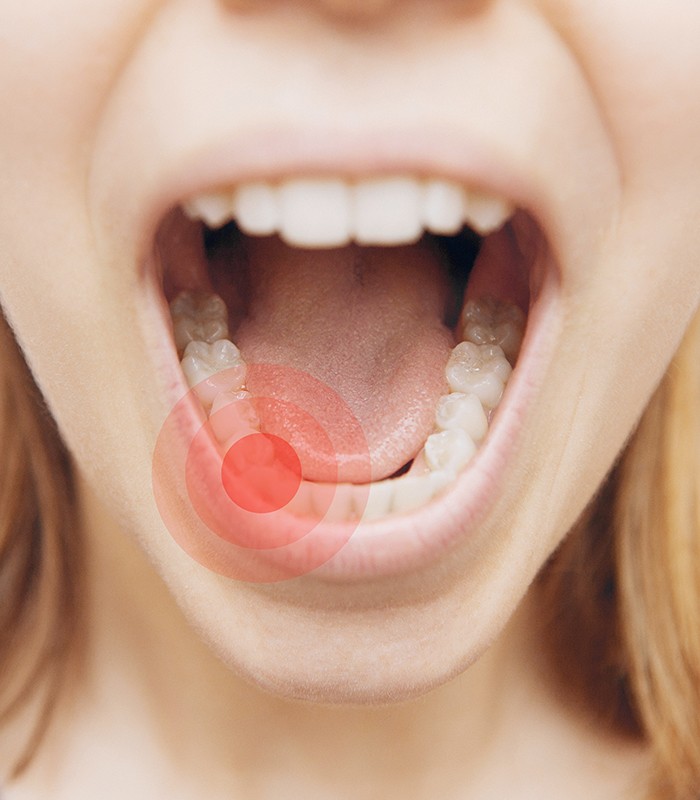
We will only recommend a tooth extraction after we have exhausted all other restorative options. A tooth typically needs to be removed if most of the enamel has been worn away by decay or trauma has broken the structure to the point that it cannot be trusted to support a restoration. Before your extraction, we’ll help you put together a plan to replace the tooth so you can regain your complete smile as soon as possible.
Dental Emergency FAQs
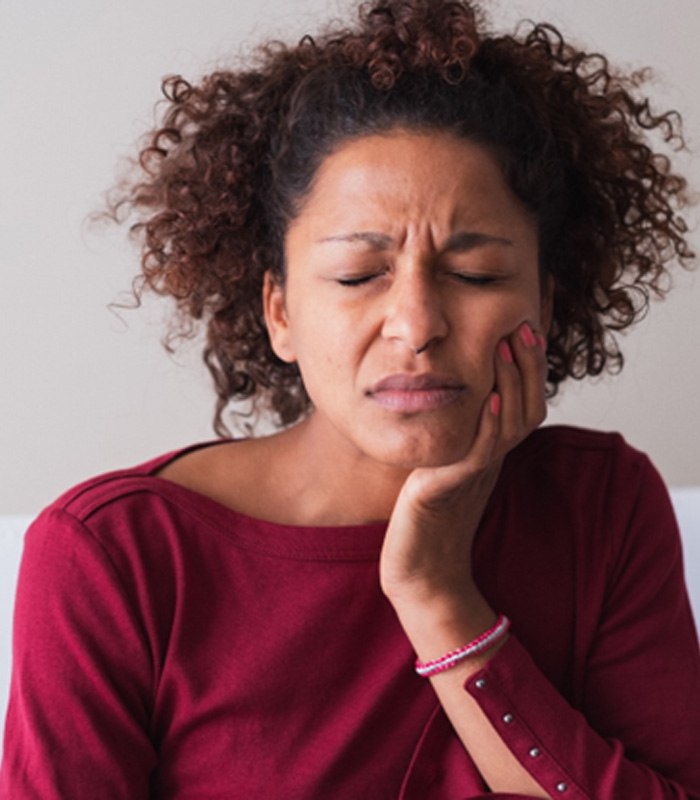
Our goal is to be helpful and informative, which is why we want to provide as much information as possible about dental emergencies right here. Below, you will find the answers to FAQs about handling dental injuries and, as always, you can reach out to us if you’d like more information!
How should I sleep with tooth pain?
It’s important that we first mention that trying to “sleep off” tooth pain isn’t recommended. However, if you have an appointment on the calendar, but it isn’t for another day or two, then there are a few things you can do to help you sleep soundly. First, we recommend sticking to soft, nutrient-dense foods at dinner, like cooked vegetables or mashed potatoes. About 30 minutes before bed, take an OTC pain reliever and use a cold compress to ice the area for about 10 minutes at a time. When you get into bed, prop yourself up on a few pillows. This will help prevent blood from rushing to your head as you sleep.
Will my toothache go away on its own?
No, your toothache will not go away on its own. With that said, many patients think that their tooth has healed if their discomfort subsides. In reality, this is actually bad news; it means the infection has “killed” the nerve. Although every patient’s dental needs are unique, we always recommend reaching out to our Jonesboro dental team when abnormal symptoms arise. This ensures that we can conduct an exam, pinpoint the cause, and intervene with the necessary restorative care early on.
Should I visit the emergency room first for dental emergencies?
Visiting the ER for dental injuries isn’t typically recommended since they rarely have dentists on staff. That’s why patients are only encouraged to go to the hospital if they are having trouble breathing, are bleeding uncontrollably, or are experiencing other potentially life-threatening symptoms.
Do I need to visit for minor chips to teeth?
Although minor chips may not impact the look of your smile, they can impact its health and function. For that reason, we recommend scheduling an appointment with our Jonesboro emergency dentist within a day or two. We want to make sure that your tooth is treated before it results in dental sensitivity, becomes infected, or chips further.
Can superglue be used to repair broken dentures?
Since superglue contains toxins that are not safe to ingest, you cannot use it (or any other household adhesives) to “repair” your broken dentures. Instead, you should call the dental professional who made your restoration ASAP so they can work on repairing it or creating a new one.
What should I keep in my emergency dentistry kit?
We recommend keeping the following in your first aid kit or a dedicated emergency dentistry kit:
- A small, clean container for restorations or knocked-out teeth
- Sterile gloves
- Gauze pads, dressings, and cotton balls
- Dental cement
- Anti-inflammatories, such as ibuprofen
- A topical anesthetic, like Orajel
- Floss
- Our contact information
Can the emergency room remove a tooth?
In most cases, the emergency room cannot remove a tooth. While they can help manage pain, control bleeding, or treat infections with antibiotics, ER doctors aren’t trained or equipped to perform dental extractions.
If you need a problem tooth removed, you’ll need to see a licensed dentist. However, if you're in severe pain or have swelling that affects breathing or swallowing, go to the ER immediately. Otherwise, contact our Jonesboro dental office for emergency care. Dr. Smith can safely extract a tooth if necessary and provide fast, effective treatment to relieve your discomfort.
Are toothpicks safe to use?
Toothpicks can help dislodge food from between your teeth, but they should be used as a last resort when other options are unavailable. If used aggressively or too often, they can scratch your gums, damage tooth enamel, or push debris deeper into your teeth or gums.
Instead of reaching for a wooden toothpick, try floss, a water flosser, or soft dental picks designed for safe use. If you're frequently getting food stuck between your teeth, it may be a sign of a spacing issue, cavity, or gum disease. Dr. Smith can help determine the cause and recommend safer solutions.
Can I pop a dental abscess on my own?
No, you should never try to pop a dental abscess on your own. Doing so can spread the infection deeper into your tissues or bloodstream, which can become life-threatening.
A dental abscess is a pocket of pus caused by infection, and it requires professional treatment. At Shane Smith DDS, our team can safely drain the abscess, relieve your pain, and prescribe antibiotics to treat the infection.
If you're experiencing swelling, fever, or a bad taste in your mouth, the best thing to do is pick up your phone and call us for emergency care. Acting quickly can protect your health and save your smile.
I Need a Checkup & Cleaning I Have a Cavity or Broken Tooth I am Missing One or More Teeth I am Worried About Bleeding Gums I Want to Enhance My Smile View All Our Services